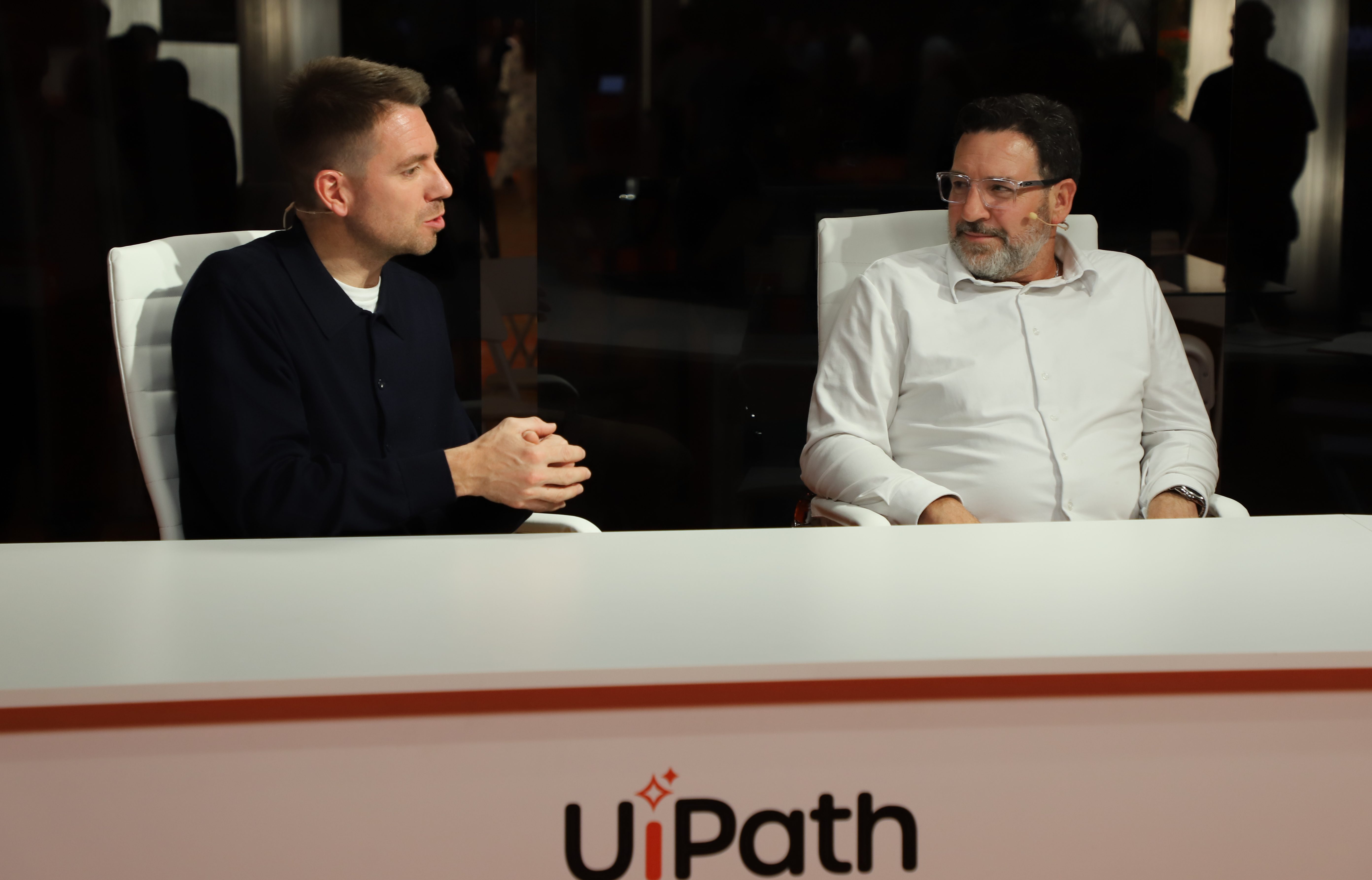
A key talking point with artificial intelligence is the convergence of agentic automation, domain expertise and measurable returns on investment.
In traditional, capital-intensive niches such as heavy building materials, that conversation becomes more pertinent — given their general rigidity and resistance to sweeping change. Bucking that trend is Heidelberg Materials North America, which has leveraged agentic automation expertise from Peak (a UiPath Inc. company) so that sales teams can spend more time with customers and less time navigating processes, according to Dan Crouch (pictured, right), vice president of sales operations at Heidelberg Materials.
“We kicked off about a year and a half ago a specific 2030 AI strategy,” he said. “What are our big bets that we can focus on to drive real change and business results? We’ve been tracking what Peak has been doing in the UK business now for three years. We’re excited to start to work with them in North America. One of our big bets is pricing and quoting … There’s some complexity in the aggregate space, lots of moving pieces and time sensitivity.”
Crouch and Richard Potter (left), co-founder and chief executive officer of Peak, spoke with theCUBE’s Dave Vellante and Rebecca Knight at UiPath Fusion, during an exclusive broadcast on theCUBE, SiliconANGLE Media’s livestreaming studio. They discussed how pricing optimization, sales enablement and agentic automation are driving both efficiency and customer value in heavy building materials. (* Disclosure below.)
Heavy industry meets agentic automation
In North America, Heidelberg Materials is piloting Peak’s AI-driven pricing and quoting solution, proven in the U.K. market. Quoting a price in the aggregates business once took up to eight hours, but automation now cuts that to 30 minutes, improving pricing accuracy, conversion rates and seller productivity, according to Crouch.
“We’d like to see an uptick in our conversion, which then will free up time for our sellers to follow up more, build more pipeline,” he said. “I think that the time it takes to factor in all the elements of pricing and quoting in general, if we can cut that down close to what they’ve experienced in the U.K. … it’s going to bring us a healthy dose of opportunity for our sellers.”
Peak’s strength lies in applying AI within specific domains such as manufacturing, retail and consumer packaged goods. By focusing on decision optimization — pricing, inventory management and demand forecasting — Peak helps companies translate AI potential into measurable business outcomes, Potter noted.
“Companies that have product inventories are trying to optimize that; they’re trying to optimize the price they charge for those products. Then we just help our customers build and grow their businesses,” he said. “I think to do that successfully in AI, you do have to be very focused on the business outcome.”
Beyond abstracting tasks, agentic automation orchestrates different technologies and processes toward a central business goal. With UiPath’s acquisition, Peak’s AI capabilities are now integrated into a broader automation platform, combining robotic process automation, machine learning and agentic automation, Potter added.
Here’s the complete video interview, part of SiliconANGLE’s and theCUBE’s coverage of UiPath Fusion:
(* Disclosure: TheCUBE is a paid media partner for UiPath Fusion. Neither UiPath Inc., the sponsor of theCUBE’s event coverage, nor other sponsors have editorial control over content on theCUBE or SiliconANGLE.)
Photo: SiliconANGLE